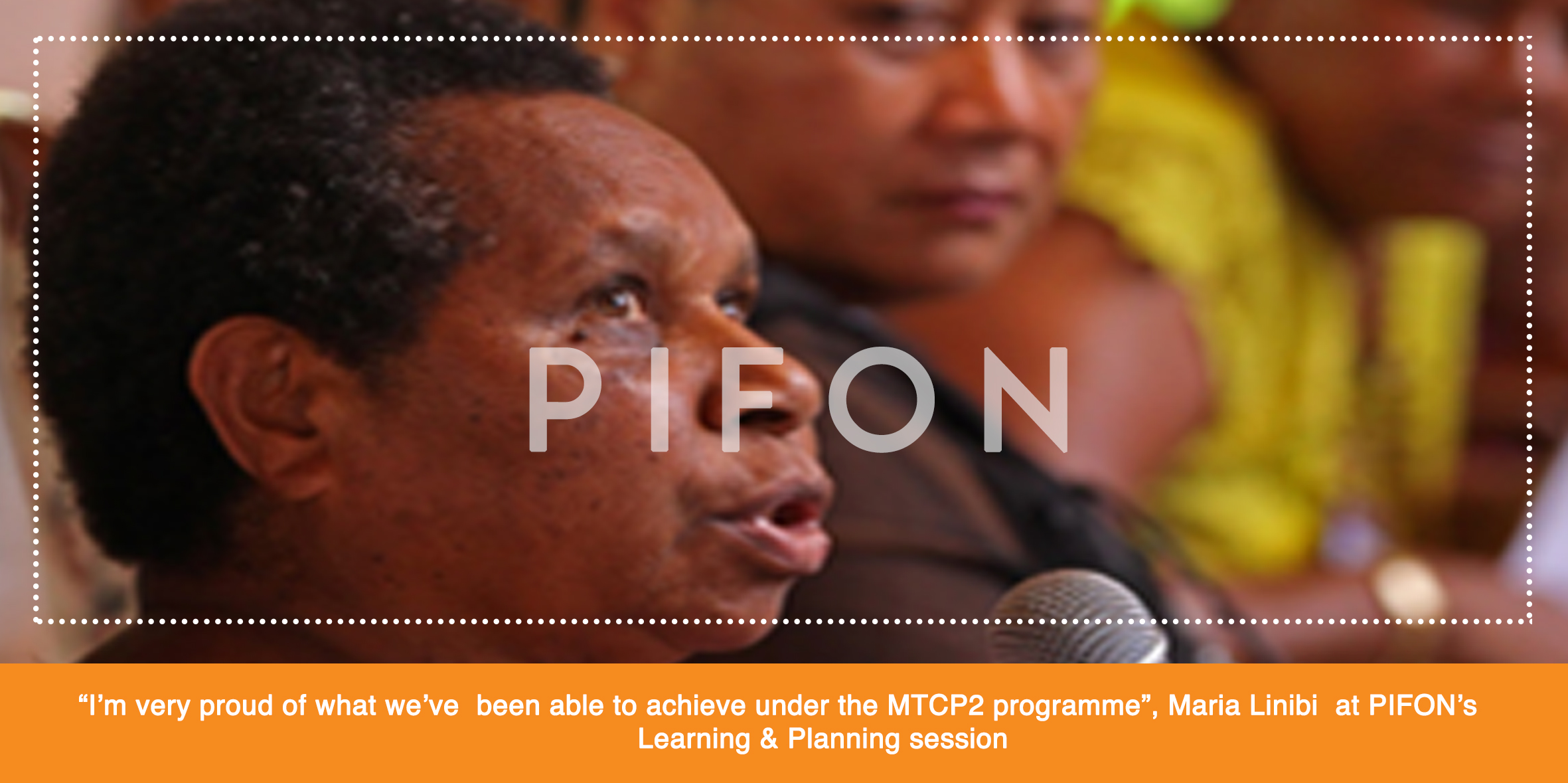October 2021
Capacity Building Reflections of Pacific Farmer Organisations

Maria Linibi is not your average farmer, in fact, she is not your average person.
As the founder of Papua New Guinea Women in Agriculture and Development, the National Implementing Agency for the MTCP2 programme in Papua New Guinea, and also as a Pacific Island Farmers Organisation Network Board Member, Maria sits at the centre of a vast network of people, information and opportunities.
Likening her role to that of a mother, she tries to broker relationships, matching people with the information and opportunities that daily pass across her desk. And while the additional burdens she faces implementing a programme of this scale sometimes get to her, like any mother, she takes great pride in the farmers’ and farmer organisation’s successes. Whether it is a farmer getting their first payment for a new crop; a farmer group taking the first steps into agri-processing; or an entrepreneur setting up their first agri-business; you can be sure that Maria will hear about it and celebrate their achievements.
Talking to Maria is a lesson in connectivity. She clearly draws lines between different activities that have been supported through the programme and shows how each was a necessary step to reaching the next. Take the Pacific Women in Agriculture Forum that was held during the Pacific Week of Agriculture held in Vanuatu in 2017. From there she returned to Papua New Guinea with a powerful message for policy makers and set about making sure she took that message to the Policy Dialogue on Women in Agriculture and Fisheries at the Asia-Pacific Economic Cooperation meeting in 2018. Her presence meant that farmer organisations and Pacific women farmers had a front row seat in the highest level of Asia-Pacific policy making.
Maria was also the Pacific Farmer Organisation Leader and Civil Society representative that presented the Asia Pacific civil society organisation statement at the Food and Agriculture’s Asia Pacific Regional Conference held in Nadi, Fiji. Also following from the Pacific Women in Agriculture Forum is an invitation to the Australian Women In Agriculture 2018 Conference, which includes participation in meetings shaping Australia’s future aid budget, Maria has been a regular participant at this conference for the last four years, representing PNG and Pacific women and taking their issues for discussion and deliberation.
Meanwhile, back in PNG she follows up with farmer organisations to make sure they provide reports back to donors and to the organisers of training and events that they participate in. She stresses that this is a responsibility recipients have to provide feedback and make sure the impacts are documented. Setting up social media pages is another way she encourages farmer organisations to let the rest of the world know what they are doing and to improve their visibility, with visibility being an important step in securing new opportunities.
As well as the direct activities programme funding has paid for, it has also been utilised for creating partnerships with other farmer organisations, government and the private sector. Partnerships allow the sharing of costs, as well as spreading the benefits of training and other learning activities. The funding has also been an important catalyst for securing participation in large projects with other donors. MTCP2 funding is helping to roll out solar rice mills to women farmers in PNG as part of an Australian Government project. Ten of the thirty rice mills being supplied will be allocated to PNG Women In Agriculture and Development. Likewise, partnering with the Korean and PNG Governments on a solar irrigation project has been made possible. So far five solar water pumps have been installed, servicing around 300 farmers. The water provided is not only used for growing crops, but provides accessible drinking water to women who previously carried 20 litre water containers up to 20kms to access drinking water.
Despite the substantial impacts seen in Papua New Guinea, and the large increase in her networks, Maria still has many unanswered business cards on her desk, and a seemingly endless list of invitations to come and meet with farmer organisations around the country that she just doesn’t have the time or resources to get around to. Lamenting these lost opportunities she is mentally developing structures and methods to improve the connectivity of farmer organisations and the flow of information in the future.
